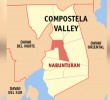On Earth Day, our hearts throb synchronous with the rhythm of the epic song of the Lumad balyan, the keeper of the cherished annals of the tribe. I imagine I engage in a one-on-one intersubjectivity with him as he reechoes his epic tales. . .
And the chords of memory replay
the hymn of the Race.
Now the Balyan slowly steps into the River of the Race and wades in the water that flows from ancient times. He scoops a handful of the pristine water, wets his lips, and lets it trickle down his tongue down to his throat. And the fine threads of his flesh welcome the sweetness of the water and his mind was roused to hearken to the stories retrieved from the special places in his soul.
And he solemnly rubs his tongue on the shaft of the tales he has kept among the treasures in his heart across the centuries. The kaglung soon plays a tune rhythmic with the recital in the Balyan’s memory—the olaging—epic stories of the lives, loves and adventures that comprise the cherished remembrances of the race.
Then his voice swings into the limitless realms of the tribal lifeworld since the beginnings of time—at the time of the creation of the universe, of humankind, of all creatures on earth— during those times when the lips of sky and earth were yet clasped in intimate kiss and the sky roof could be touched by the people inhabiting the world—during those times when the Moon and the Sun were still living together as happily married couple until such time that they parted ways to become respective lamps of night and day—during those times when Manama who was the most powerful of the heavenly beings created the first man and woman from the blades of grass which He wove into human forms—during those times when Tuglay and Tuglibong as human creaturesmade Mount Apo their dwelling place.
Rhythmic flux of splendid verses from his lips recount the adventures of the epic heroes of the tribes—the noble Baganis , countless hordes of the Sons of the Race, who have since manifested their heroism in fighting against the enemies of their tribes, building palisades as ramparts to safeguard their Ancestral Domain, spreading the glories of their tribes by virtue of their cherished commitment to the ideals of justice, freedom and peace.
Living images are relived—the terrible combat scenes between the tribal warriors and their adversaries, glorifying their names, valor, and noble feats.
One of these famed epic heroes of Mindanao is Tuwaang or Tulalang whose name is murmured by every leaf and grassblade, his handsome mien encapsulated by the dewdrops. Not a single creature from any corner of the world could surpass him in bravery and skills in combat. The blade of his kampilan is constantly honed by the blood, flesh and bone of those he had subdued by his fierceness.
The story of Tulalang is told and retold as a riverflow down the ages from the zenith of Mount Pantaron that overlooks Talaingod rippling down the mountainslopes and hillsides and downstream to the lowlands.
And the Balyan guides the flow of his chant along the River whose source was the Lake of Maglawa—where the lovely Diwatas (river fairies) one morning had their playful swim, proclaimed in their song the immaculate beauty of the native lifeworld.
Then he retells an episode of Tulalang’s exploits in ancient times when Mindanaw was troubled by a Tawong Ugis (White Man) who destroyed the rock formations at the rims of Lake Maglawa—yes, he destroyed what Magbabaya built for the tribe and its people… the lake which was the playground of the fishes…the lake which served as the watering hole of the deer and other animals of the forest.
Tulalang rode on his magic sinalimba, accompanied by his close friend and ally Gungutan. Soon he caused it to touch down on a spot in the green meadows near the Lake. He found that the Lake had become considerably shallow. Seeing the Tawong Ugis’ deeds, Tulalang was enraged. But the Tawong Ugis had no combat weapons. He had only a shovel and pick mattock, and what looked like spear with wide flat end. No gun was strapped on his hips, but he was wearing a steel salakot shaped like the head of a penis…!
The Balyan raises the volume of his voice to dramatize the exchange of words between Tulalang and Tawong Ugis:
Tulalang shouted, “Hoy, Tawong Ugis! Stop destroying our Lake Maglawa! That is a sacred place, Magbabaya’s gift to the people”
But the Tawong Ugis only laughed and shouted back, “Hey Unggoy! If you don’t want to be sliced into a kusahos , get out of here!”
Quicker than the wink of an eye, Tulalang threw his bangkaw at the giant white man. But the giant easily parried the spear! And he swiftly moved to hold Tulalang by the waist and threw him against a hill. The earth shook and the boulder slammed by Tulalang’s body crushed to tiny pieces. Tulalang quickly stood up and leapt to the white sand on the beach. Then swift as lightning he rammed at the Tawong Ugis who fell and sank into the bottom of the Lake’s bed of rocks.
The Balyan shifts his voice one octave higher as he narrates a hair-raising scene! The Tawong Ugis emerged from the Lake’s bottom seemingly unscathed, caught Tulalang at the hips and flung him high up to the clouds! Like a hawk Tulalang hovered in the air below the clouds.
Gungutan could not contain his fright. He flew up to help his friend and said, “I will pick the eyes of the giant with my sharp beak!—time for you then to strike open the penis-shaped salakot , for I suspect that evil man’s power is hidden in it!”
And soon Tulalang plummeted down towards the spot right in front of the Tawong Ugis, and fiercely struck his taming (shield) against the body of the giant and thrust and slashed and swiped his ginapuan (sword), its sharp blade gleaming in the sunlight! At the same time time, Gungutan‘s very pointed beak picked at both eyes of the giant who screamed out his unbearable pain!
And quickly Tulalang struck the salakot shaped like a penis-head! And it fell to the ground making gong-like sounds as it rolled down against the protruding stones on the rivershore…!
The river fairies watching the earthshaking combat scene soon made manifest their cheers and then solenmnly sang. . .
Pagkatam-is pagpuy-an
[Oh how sweet it is to live]
Ang gawasnong kalibotan
[in a world where freedom is rife]
Nga walay tampalasan
[where there are no tyrants]
Ug walay lampingasang
[and nobody dares to ravage]
Sa katahom mopasipala
[the splendid beauty and charm]
Sa mga gasa ni Magbabaya
[of the gifts of Magbabaya]
But NOW. . .the residents of Talaingod at the foot of Mount Pantaron. . .have fled from their homes and farms and trekked a thousand miles to Davao City to seek refuge and escape from the atrocities of the government soldiers, who serve as guardians of Mining Capitalist Aggressors who are bound to grab their ancestral lands. The Talaingod tribal Baganis at various times have valiantly engaged these oppressive ravaging soldiers. And the tribespeople — the Manuvus of Talaingod — have turned out veritable balyans who, picking up the pieces and shreds of experiences and adventures in their struggles against the intruders and aggressors, have dared to strum the chords of their kuglung and saluray, and weave their own modern day chants and songs. One of these chants follows. . ..
URANDA
[A Talaingod Manobo Chant by Datu Carlito Sambiyang]
My dear suled, my brethren and tribal people
We are in a visiting sojourn here in the city
We have seen the big disparity
Between the situation here
And in the mountains we come from
My dear suled, my brethren and tribal kinspeople
We must not weaken in our standpoint
Albeit we are not one with them in status
Thanks to the concerned people from the cities,
The support groups helping us
They have seen our conditions as Lumads
With the extreme hardship we have endured
In this historical time
Let us unite
Just like a trail, farther ahead
We will reach its end
And like a climb up a ladder
Just one more step
And we are at victory’s door.
I cannot help but shed tears remembering what
my tribe has gone through
In the middle of the night
My tears would just flow
Our struggle
We must pursue
Keeping in mind always
Our dear ancestral land
For the sake of all the generations yet to come
We need not fear
This is our struggle
Oooooooohhh
My dear suled, my brethren and tribal kinspeople










